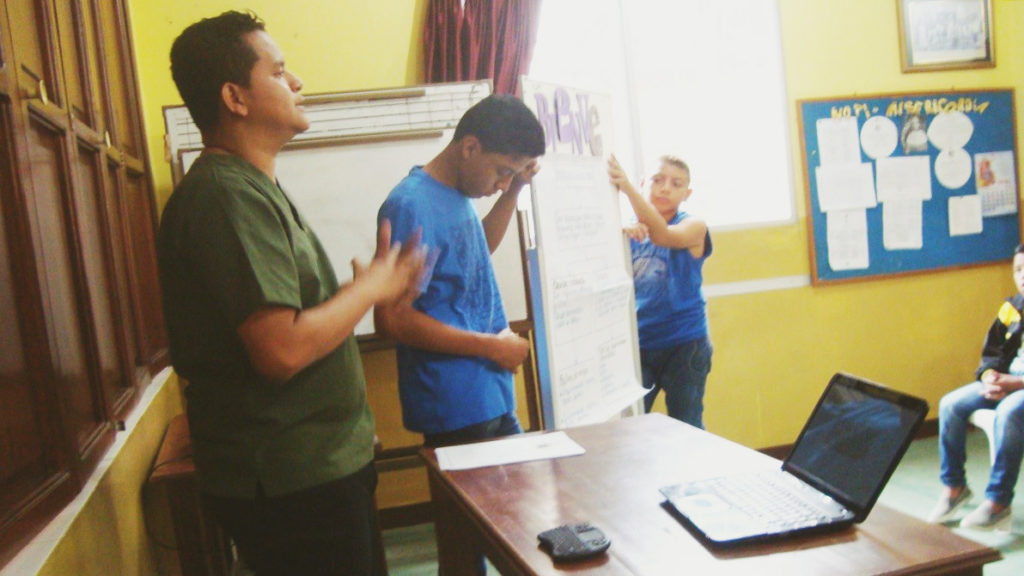While the Faro Verde project was preparing to carry out a final fundraiser with the Carihuairazo team, the pandemic came to a halt, both for fundraising and for construction in Pascuales.The needs of the community suddenly shifted into emergency food needs (leading to our food basket offer).
The last few months have allowed us to distance ourselves from the Faro Verde project and see it from a different angle. First, the urgency of food needs underscored the fundamental role of agriculture in any empowerment project. This need has increased in urban areas where families remain highly dependent on the Ecuadorian labour market, which is itself extremely precarious. Thus, faced with the sudden cessation of activities imposed by the pandemic, FASMRC employees found themselves struggling to reach the community of single mothers, a situation that continues to this day.
At the same time, for the FEE, a new challenge is looming, as the pandemic has accentuated the competition that exists in the funding applications of major foundations. Operating expenses such as those SchaferandweinerShops Netherlands - adidas weightlifting suit australia open schedule - ‘Orketro’ sneakers ADIDAS Originals nike roshe runs cute girls shoes vans high tops of the Garderie or the Women’s Centre are no longer enough to convince the major funders. Hence this priority objective: to financially empower the FASMRC – and ideally in line with the Faro Verde.
But what better way to achieve this than by taking inspiration from the work of Ecuadorian farmers who can already make a living from it? At FASMRC, we are fortunate to have one of them, Tito Lore, a farmer from father to son, and currently responsible for the outlying gardens at FASMRC. Thanks to him we have a window on stakeholders and stakeholders in the production and sale of organic fruits and vegetables in Ecuador. In this case, these nike dunk high blue satin nike air force 1 07 black cool grey racer blue white are protected crops (corollary of organic agriculture in Ecuador to avoid harmful insects without pesticides), they are called “invernaderos”.
Invernaderos are not greenhouses per se: with thin meshes instead of glass or plastic, they protect crops from pests and possible ash fallout.
Finally, it goes without saying, but we can never repeat it enough: the involvement of women, especially single mothers, will be essential. If the pilot works – and this is our intention – training will be offered to single mothers in the community, with the corresponding jobs at stake.

